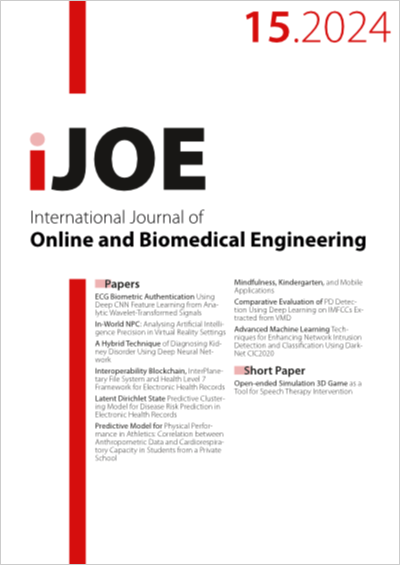Mindfulness, Kindergarten, and Mobile Applications
DOI:
https://doi.org/10.3991/ijoe.v20i15.51341Keywords:
mobile applications, mindfulness, kindergartenAbstract
The following review explores the use of mobile applications in mindfulness practices. Also, it examines the fundamental characteristics of mobile applications that might enhance their effectiveness. This study is the third and final phase of a project that aims to investigate the advantages of technology and mindfulness in kindergarten. In the first two parts, we examined the use of social robots and virtual reality in mindfulness interventions. The objective of this paper is to present existing research on mobile applications and mindfulness, evaluate the possible advantages and obstacles of combining these two fields, and also analyze the features of the apps that lead to optimal results. We conducted a bibliographic review of articles. The results of our study indicate that mindfulness applications have a substantial impact on the development of children’s mindfulness abilities, such as their ability to regulate attention and manage emotions, while also enhancing their general well-being. Advances in mobile technology provide opportunities to overcome barriers to traditional mindfulness training because they are portable devices that are also cost-effective. According to our findings, the apps should be age-appropriate, simple, and engaging. However, there is limited empirical evidence supporting the efficacy of many available mindfulness apps. We need further research to explore and validate their effectiveness, especially in comparison to traditional in-person interventions.
Downloads
Published
How to Cite
Issue
Section
License
Copyright (c) 2024 Panagiota Anagnostopoulou, Athanasios Drigas

This work is licensed under a Creative Commons Attribution 4.0 International License.



